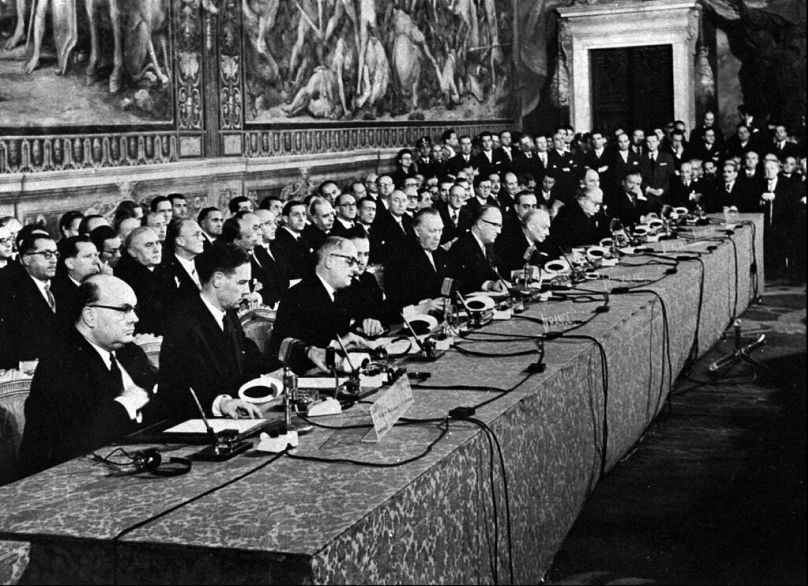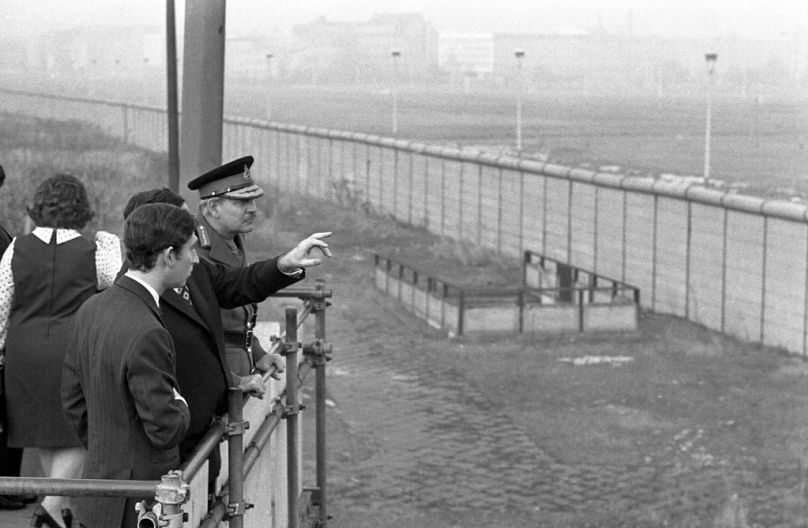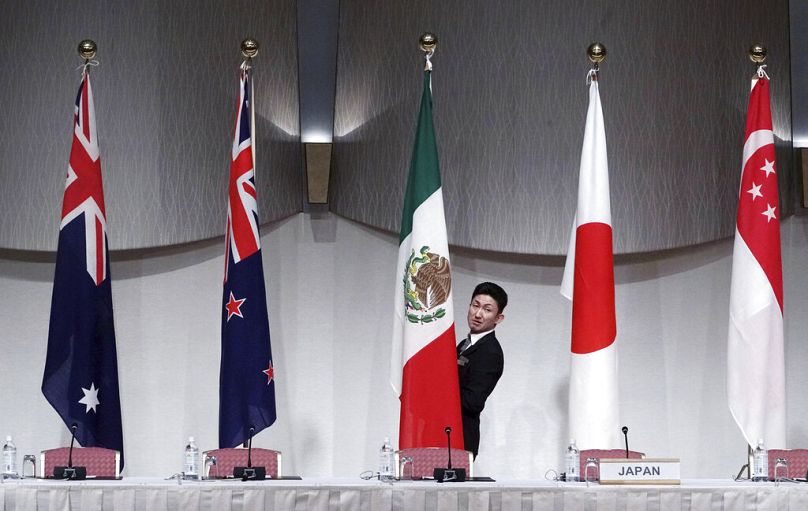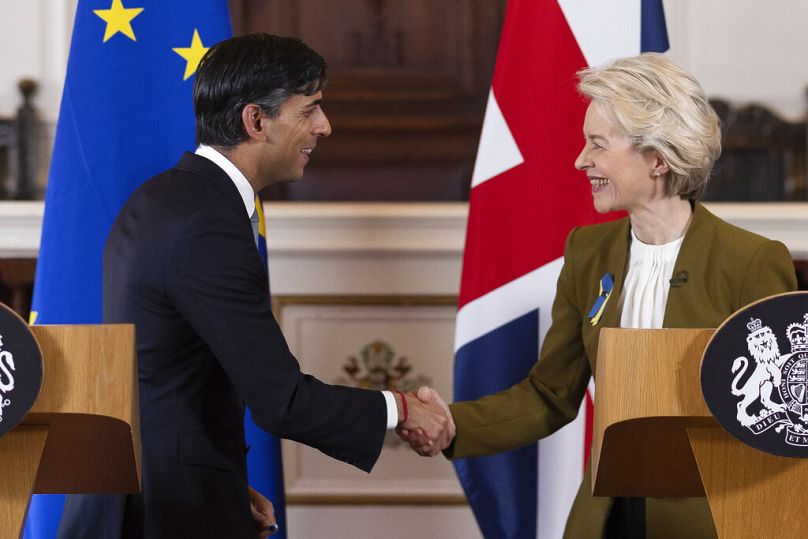The UK must not continue to reject the Single Market in favour of trade agreements such as that with the CPTPP, Dan Sutton and Christos Kourtelis write.
Britain’s ascension to the Comprehensive and Progressive Agreement for Trans-Pacific Partnership (CPTPP) has been touted as its “biggest trade deal since Brexit”.
 ADVERTISEMENT
ADVERTISEMENT
 ADVERTISEMENT
ADVERTISEMENT
Positively, the CPTPP undoubtedly presents potential benefits for the UK, receiving greater trade access to over 500 million people.
The CPTPP is a trade agreement with 11 countries, including Australia, New Zealand, Canada, Mexico, Japan, Malaysia, and Singapore.
However, joining the CPTPP will help the British GDP to grow by 0.08% — or only a 50th of the economic damage impounded by Brexit.
Contrastingly, leaving the Single Market, the OBR predicts that the UK’s GDP will be 4% lesser over 15 years as a consequence, whilst others have predicted that GDP has already reduced by 5.5%.
The UK has a history of overestimating itself
This self-inflicted damage is reminiscent of British attitudes to Europe in the 1950s and 1960s.
In 1955, Britain "missed the boat" at Messina, refusing to buy a ticket for proper involvement in European integration.
Later, the UK understood the necessity not to be left behind whilst simultaneously opposing the Messina Six’s supranationalism, doubting its long-term potential.
Thus, it arrived at "Plan G" — an attempt to promote British interests in the run-up to the Messina Six establishing the customs union at the Treaty of Rome.
Plan G was Britain’s attempt at reconfiguring trade relations with Europe, pursuing full access to Europe’s markets without accepting customs that would limit its ties with the Commonwealth.
Unsurprisingly, with Britain overestimating its prowess, Plan G was rejected by the EEC members.
Plan G showed how unaccustomed Britain had become to informing integration positively — still emptily seeking what was best for the UK without considering the bigger picture.
Same thing happens with the Single Market
Following this, Britain applied for full membership twice in the 1960s, desiring to acquire the lost level of influence within Europe.
The UK had to accept fully developed institutions, procedures, and policies upon joining the European Community in 1973.
Overvaluing itself, Britain’s reluctance to integrate with Europe meant that it endured economic detriment. Between the ECC’s origination in 1958, and Britain joining the EC in 1973, its GDP per capita grew by 50%, whilst France, West Germany, and Italy saw 95% growth.
The patterns are self-evident. In the 1950s, the UK was fuelled by a misunderstanding of its place in Europe, failing to see past the lens of an empire that was in the midst of collapse.
Aligned, Britain has made the same mistakes in leaving the Single Market, adopting a trade partnership that is shaped by others and raises significant political questions.
What about animal welfare and environmental standards?
Firstly, of the countries within the CPTPP, the EU has trade agreements with Canada, Chile, New Zealand, Mexico, Japan, Malaysia, Peru, Singapore, and Vietnam whilst ongoing negotiations with Australia are reportedly close to being finalised.
Seemingly, the trade deal the UK has reached is one with Brunei. However, there is obviously a difference in governance between the EU’s set of deals and the UK’s. And such governance of the CPTPP raises cause for concern.
One issue regards Britain’s approach to tariffs within the CPTPP. Within the CPTPP, members have upheld protectionist tariffs in particular areas, and the UK is entitled to do so.
Imperatively, countries outside of the UK aren’t required to meet the UK’s standards, such as with animal welfare and environmental standards.
Thus, if the UK removes tariffs on the CPTPP in these areas, there is a possibility that UK farmers might get priced out of business whilst the public could receive produce that doesn’t meet Britain's animal welfare standards.
The UK has seemingly accepted an agreement that presents the same criticisms received from the potential arrival of US-grown chicken.
A step symbolic of British Declinism
Moreover, the officials in London will be held to foreign lobbying pressures to remove or impact regulation that prevents profit. Thus, in the future, the UK may be politically pressured by objections against raising its standards.
Irrespectively, the UK has promised that whilst it is now possible to do so, it won’t compromise its standards, but immediately came under criticism as it announced the concession of tariffs on Malaysian palm oil, which has been blamed for deforestation.
Such issues are of further significance due to the CPTPP’s dispute mechanism. Giving written evidence, the BHR strongly criticised the CPTPPs ISDS.
Through ISDS, corporations receive the ability to sue states if a policy threatens future profits or even if it is aimed at protecting human rights, minimum wages and the environment. Compared to the Single Market, this is a step symbolic of British Declinism.
Whilst joining the CPTPP raises specific issues, there is a similar limitation to arguments made around ascension blocking a return to the Single Market.
In continuum with the comparison with the 20th century, when Britain did join the EC in 1973, it remained a member of the then-divergent EFTA, proving that realignment is possible.
Why keep repeating the mistakes of the past?
However, re-joining would potentially be prevented by the issue of harmonising the rules between the CPTPP and the EU.
Currently, if there is a regulatory divergence between CPTPP membership and Single Market membership, and as the UK currently de facto aligns with the Single Market, there would then be a clash between the UK and CPTPP.
A lack of this shows the strong level of consistency between the two trade areas.
Thus, the issue of regulatory divergence is a future one. The ISDS could see that Britain’s desire to upkeep high food standards incurs opposition, whilst the UK could adopt a complex position where it conforms domestically to EU regulation, with different requirements for trade with CPTPP.
Overall, there remains one key point. The UK must not continue to reject the Single Market in favour of trade agreements such as that with the CPTPP.
Ironically, if not re-joining the EU, the obvious solution to Britain’s current situation is re-joining the EFTA, the organisation it set up to counter the European customs union in the 1950s, now part of the Single Market.
In the end, the UK must come to understand its past, not continue to repeat its mistakes.
Dan Sutton is a postgraduate researcher at the University of Manchester, and Dr Christos Kourtelis is a lecturer in European and International Politics at Loughborough University.
At Euronews, we believe all views matter. Contact us at view@euronews.com to send pitches or submissions and be part of the conversation.















